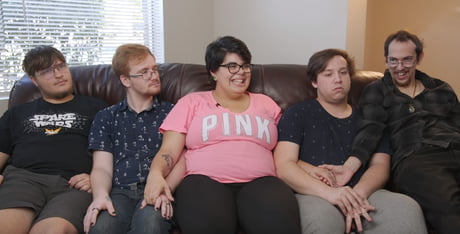Blog Post
Second U.S. city legalizes polyamory (who cares about the kids?)
Since same-sex marriage and the rest of the LGBT agenda went mainstream, polyamory has been lurking on the edge of the movement as one of the next social causes prepping to be sprung into the mainstream. I’ve covered it before: In California, “three dads” are leading the charge to normalize their cluster relationship; Canadian taxpayer dollars fund stories designed to mainstream polyamory; a Massachusetts city council has approved benefits for polyamorous clusters; there has been much murmuring about legalization.
Now, Cambridge, Massachusetts has followed Somerville in correcting the great injustice of discrimination against polyamory or polygamy:
The city council of Cambridge, Massachusetts recently approved an ordinance altering the city’s current statute to allow for domestic partnerships between 3 or more adults. The council approved the change last Monday and the definition of domestic partnership in Cambridge was rewritten to be “the entity formed by two or more persons” who are not related and must register as a “relationship of mutual support, caring and commitment and intend to remain in such a relationship”, Reason reports.
Additionally, they cannot be “in a domestic partnership with others outside this partnership,” and “consider themselves to be a family.” Included in the new definition is the exclusion of the requirement that the domestic partnership must live together as well as the domestic partners no longer needing to verify their familial relationship to the city through multiple pieces of evidence.
PLAC, a coalition of the Chosen Family Law Center, the Harvard Law School LGBTQ+ Advocacy Clinic, and members of the American Psychological Association’s Committee on Consensual Non-Monogamy, published a statement in celebration of the move.
“The ordinance was developed with detailed input from the newly formed Polyamory Legal Advocacy Coalition (PLAC), and is the first of what advocates hope will be a wave of legal recognition for polyamorous families and relationships in 2021,” PLAC said.
The coalition seeks for the legalization of polyamorous relationships extending beyond the traditional nuclear family with “non-nuclear families”.
“Non-nuclear families—such as single parents supported by relatives, step-families, open adoption families, multi-generational families, multi-parent families, and polyamorous families—have changed the landscape of American society, and yet, many of these diverse family structures are not protected or recognized by the law,” Alexander Chen of the Harvard Law School LGBTQ+ Advocacy Clinic wrote in a statement.
Terms like “mom” and “dad” are under fire, but throuples are trendy. Adults can organize their sexual relationships in complicated webs as governments get in line—and children, who desperately need a mom, a dad, and stability, inevitably suffer. That is precisely why we see so much press coverage touting this hedonism as “good for the kids”—because deep down, we all know that we are robbing them of their birthright.








